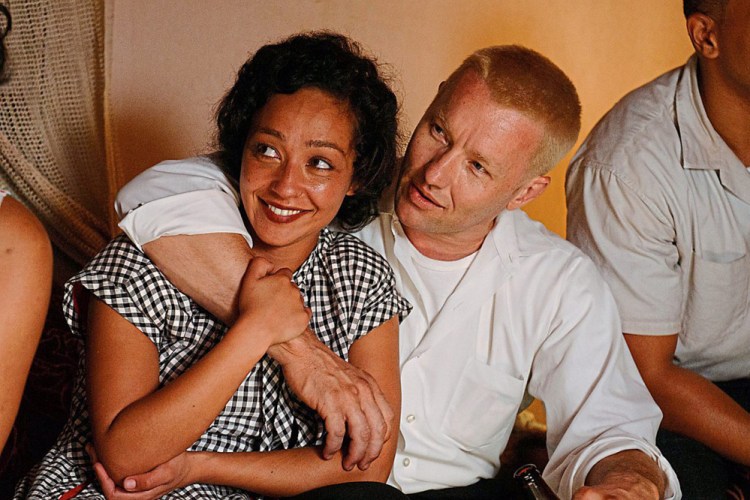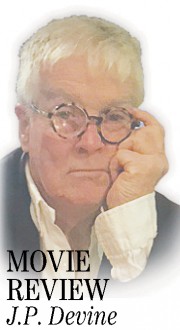“I love you as certain dark things are to be loved, in secret, between the shadow and the soul.” ― Pablo Neruda, 100 Love Sonnets
For millennials who have been busy protesting, some breaking news about 16 of the stars in that flag you salute every 4th of July that you may be surprised to hear.
Those states have had, for generation after generation of white power, laws that enforced racial segregation and criminalized marriage and even sex between members of different races, not just black and white, but Asian and white, and if it came to that, marriage between whites and Martians. Here’s a movie you might want to check out this week.
Writer/director Jeff Nichols’ film “Loving” tells the story of two, sweet, hapless dream lovers, Richard and Mildred Loving, he a white Southern bricklayer, she a simple housewife, who fell in love in the then racist state of Virginia, where the word “love” was meant only to apply to someone who looked like you or to your dog or cat or pet cow. Did I forget to tell you that she was black?
So Richard (Joel Edgerton) and Mildred (Ruth Negga) had to go up to relatives in Washington, D.C., to get hitched, even though they must have known that when they came home, the state of Virginia would not only not recognize their marriage, but they would be arrested, forced to plead guilty, fined and sentenced to prison unless they left their kin, the state of their birth, and promised not to return for 25 years.
In the course of this action, they ran afoul of Judge Bazil (David Jensen), a racist bench sitter, and an uber racist sheriff (Martin Csokas) with icy eyes, clammy hands and a sadistic heart.
Both are actors of quality and talent, so good at their job that you will loathe them.
The Lovings agree and move to Washington, D.C., where they proceed to raise their three kids in a dangerous slum area where the youngest is hit by a car while playing in traffic.
After they suffer into the ’60s, Mildred, inspired by seeing a television broadcast of Martin Luther King’s March on Washington, is moved to write a letter to Bobby Kennedy, asking for help. She gets it.
The Attorney General sends the ACLU and a lawyer, Bernard Cohen, to take on the battle.
After dismissal after dismissal, the ACLU finally makes it to the Supreme Court, where the thunder and lightning of justice prevails.
After a heartbreaking, soul-tiring nine years, their landmark case explodes across the front pages of the world and results in the landmark 1967 decision overturning anti-miscegenation.
Edgerton does a beautiful job of breathing life into the stoic bricklayer, Richard Loving. He has no more than 15 lines, each one dredged up from his sickened heart and soul, but each one is delivered with cold power.
Ms. Negga’s portrayal of Mildred Loving is a bouquet of simple glances, delicate moves writ large by eyes full of rain, but still brimming with love for her man. Shots of her fragile hands, twisting one with the other, deliver more than any words given her to speak. That’s called acting.
The film is powered by Edgerton’s painful silence, but given its glory by Negga’s eyes — eyes full of dreams and hope.
Nichols’ writing is simple and direct, covering all the important moments, nothing fancy, just truthful.
“Loving” is not a great picture, but it is a good and important one. It is good because its message is simple and at the same time thunderous. It is important because it reminds us that just because the breezes that ruffle that flag we salute are often sweet, the stink of American racism on the ground is virulent and festering, always waiting for the hot dry calm of complacency when the flag droops and monsters in “patriot” costumes stalk our streets. “Loving” is a reminder and a warning.
J.P. Devine is a former stage and screen actor.
Send questions/comments to the editors.



